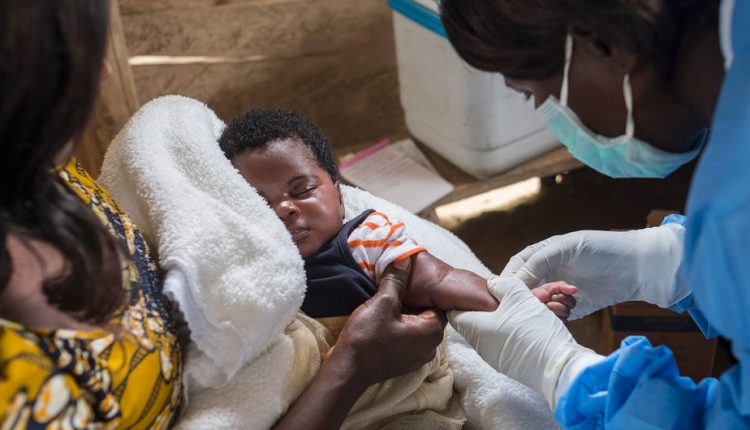World must invest in strong health systems that protect everyone — now and into the future
The COVID-19 pandemic has revealed just how important it is for all countries to have strong health systems that provide the entire population with quality services when and where they need them, UN Secretary-General António Guterres has stressed.
“For Universal Health Coverage Day, let us commit to ending this crisis and build a safer and healthier future by investing in health systems that protect us all — now”, declared the UN chief, adding that: “This year’s pandemic has shown us that no one is safe until everyone is safe.”
In his message on the Day, marked annually on 12 December, Mr. Guterres underscored that in 2020, the world had witnessed the tragedy that strikes when health facilities are overwhelmed by a new, highly infectious and often deadly disease.
Overstretched by COVID-19
And further, the coronavirus outbreak had painfully illustrated what can happen when the effort to address an emergency so overstretches healthcare systems that they can no longer provide other essential services such as cancer screening, routine immunization and care for mothers and babies.
“We must do far more if we are to reach our goal of achieving universal health coverage by 2030,” the Secretary-General said, referring to an agreement reached by UN Member States in September 2019, just months before the pandemic struck.
Reaching this goal would mean not just spending more on health, he said, but spending better, from protecting health workers and strengthening infrastructure to preventing diseases and providing healthcare close to home, in the community.
“Investments in health systems also improve countries’ preparedness and response to future health emergencies,” the UN chief explained.
Marginalized and vulnerable, worst hit
Health emergencies have disproportionate impacts on marginalized and vulnerable populations, Mr. Guterres continued, underscoring that as new COVID-19 vaccines, tests and treatments become available, they must reach all those who need them.
“In responding to the pandemic, we have seen rapid innovative approaches to health service delivery and models of care, and advances in preparedness. We must learn from this experience”, he said.
Right to health
During his regular briefing on Friday on the COVID-19 pandemic, WHO Director-GeneralTedros Adhanom Ghebreyesus noted that world had just recently marked Human Rights Day, and these two days, “coming so close together at the end of this very difficult year, are a reminder that as we rebuild from this crisis, we must do so on the foundation of human rights – including the right to health.”
This is precisely the moment for investing in health — WHO chief Tedros
Mr. Tedros said: “2020 has reminded us that health is the most precious commodity on earth. In the face of the pandemic, many countries have offered free testing and treatment for COVID-19 and promised free vaccination for their populations. They have recognized that the ability to pay should not be the difference between sickness and health, between life and death.”
For its part, WHO is launching two initiatives to support and rapidly accelerate countries’ journey towards universal coverage.
The first, explained Mr. Tedros, is a global programme to strengthen primary healthcare, better equipping countries to prevent and respond to emergencies of all kinds, from the personal crisis of a heart attack, to an outbreak of a new and deadly virus.
The second is a new “UHC Compendium” designed to help countries develop the packages of services they need to meet their people’s health needs.
Spending patterns
“WHO is also launching a new report that provides the first analysis of how global health spending has changed during 2020 in response to the COVID-19 pandemic,” he said, noting that among other things, the new report warns that higher debt servicing could make it more difficult to maintain public spending on health.
“But this is precisely the moment for investing in health. The pandemic has demonstrated that health is not a luxury; it is the foundation of social, economic and political stability. Indeed, today’s report highlights that the COVID-19 crisis provides an opportunity for a ‘reset’ in countries with weak health financing systems”, explained the WHO chief.

